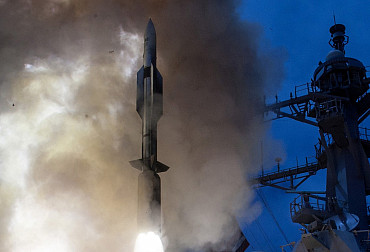Israeli Prime Minister Benjamin Netanyahu fires Defense Minister Gallant
In a significant political shake-up, Israeli Prime Minister Benjamin Netanyahu dismissed Defense Minister Yoav Gallant late last evening, citing a “widening gulf of trust” over Israel’s military operations in Gaza and Lebanon. The decision, which comes in the midst of one of Israel’s most challenging wartime periods, has stirred intense debate and criticism among political leaders and analysts alike.
Netanyahu stated that during an active military campaign, “full trust is required” between the prime minister and the defense minister. Although Netanyahu and Gallant initially worked well together following the Oct. 7 Hamas attack, their relationship reportedly began to deteriorate over differing strategic priorities. "Significant gaps were discovered between myself and Gallant in the management of the campaign," Netanyahu remarked. He claimed efforts to reconcile these differences only widened, noting that the discord had become public knowledge—a situation that, he suggested, offered an advantage to Israel’s enemies.
Following Gallant’s dismissal, Netanyahu announced that Foreign Minister Israel Katz would step in as defense minister. Katz, praised by Netanyahu for his extensive experience and leadership, now faces the challenge of guiding Israel’s defense at a particularly volatile time.
Gallant, a former naval commando and commander of the Gaza Division and Israel’s Southern Command, reacted to his dismissal by reaffirming his commitment to Israel’s security, calling it “his life’s mission.” Since joining Netanyahu’s Likud party in 2019, Gallant has been a prominent voice on military affairs, advocating for proactive defense measures and pushing for policies such as expanding conscription to include ultra-Orthodox Jews, who have traditionally been exempt from military service.
Gallant’s firing has sparked backlash, particularly from opposition leaders and defense experts. Yair Lapid, an opposition leader, called Netanyahu’s decision “an act of madness,” criticizing it as prioritizing political survival over national security. Yair Golan, a former IDF Deputy Chief of Staff and current leader of the Democrats’ party, urged Israelis to protest Gallant’s firing. Analysts have echoed these concerns, noting that Netanyahu’s actions appear to be aimed at appeasing far-right coalition members rather than focusing on military cohesion.
Ksenia Svetlova, a former Knesset member, described the move as dangerous, especially given that Israel faces conflict on multiple fronts in its bloodiest war since 1948. Similarly, Yaakov Katz, an expert on Israeli defense, argued that Netanyahu’s decision may have been timed to avoid scrutiny from the U.S. amid its own election cycle. Katz also noted Gallant’s importance as a liaison to the U.S., a role that will now shift with Katz’s appointment.
This firing is not an isolated incident in Netanyahu’s political history. Past disagreements with defense ministers have often placed his administration under strain. In 2018, then-Defense Minister Avigdor Liberman resigned over policy disputes concerning Gaza, and in 2023, Netanyahu attempted to remove Gallant over criticism related to judicial reform—a decision he later reversed in response to widespread protests.
Gallant’s departure leaves Israel in a precarious position, as it continues to manage hostilities with Iran, Gaza, and other adversaries. The recent escalation in hostilities with Iran, which followed reciprocal strikes between Israel and Iran in October, underscores the challenges facing Israel’s new defense leadership.
This political upheaval raises questions about the stability of Israel’s defense strategies at a critical moment. As Israel navigates an intensifying regional conflict, the impact of this leadership change on military strategy and international relations remains uncertain.










